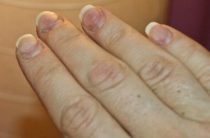During an allergy during pregnancy, unfortunately, not only the mother suffers. Its negative impact can also spread to a child who already has a hereditary predisposition to this disease. During pregnancy, allergies require careful and strict control, since there is a risk of developing severe forms of symptoms that directly threaten the health and life of the mother, and hence the child.
But this does not mean at all that it is necessary to fall into despair and refuse to have a child. In no case! It is only that allergic diseases must be taken into account at the stage of planning a child and carefully monitor the state of health when you are pregnant, taking appropriate measures recommended by a competent specialist.
It is also worth considering that it is impossible to predict the reaction of the body during pregnancy, it behaves extremely unpredictably, which can manifest itself in the development of allergic symptoms during pregnancy in a woman who has not previously suffered from allergic reactions and has no predisposition to them. In this case, an allergy can even occur to the usual factors that a person faced constantly, before the start of pregnancy. It is also worth noting that it is not uncommon for a mother to stop experiencing allergy symptoms during pregnancy, even when in contact with an allergen. This is because during pregnancy there is an increase in the secretion of cortisol, which occurs as a result of stress. Cortisol in our body is responsible for the removal of immune reactions: inflammation, vasodilation, dermatological manifestations, etc.
But still, this does not mean at all that during pregnancy you can not be afraid of contact with the allergen. On the contrary, it is necessary with the greatest care, even if the allergy did not show strong symptoms before. Since, during pregnancy, there is not only a decrease in allergic symptoms, but also its weakening.
Why does an allergy develop?
Allergy is not so much a specific disease. This is a group of symptoms, the appearance of which is associated with the functioning of the human immune system. To understand what the relationship is here, you need to understand how our immunity works. The immune system, during evolution, has learned to recognize certain substances and respond to them properly. This is due to the production of proteins such as antibodies. Antibodies formed in the course of constant contact with the irritant have acquired such a shape and configuration that allows them to combine with molecules of harmful substances.
Antibodies are different proteins, each of which responds to a specific type of stimulus, whether it be parasites, chemicals, viruses, or other adverse factors. All of these are part of the normal functioning of the immune system.
Allergy is a pathological form of immunity sensitivity, which develops as a result of certain abnormal influences. This leads to the fact that the cells of the immune system produce antibodies to harmless substances (food, pollen, animal hair). All this provokes a reaction from the immune system, which just manifests itself as allergic symptoms.
Causes of allergies
Negative impact of by-products of industrial production. In the course of industrial processing, a large amount of harmful substances enters the air, with which residents of ecologically disadvantaged areas are forced to come into contact every day. This contact does not pass without a trace, for the body, as a result of which, among other complications, the development of allergic diseases occurs.
Wrong nutrition. Modern foods that are eaten have a high content of preservatives, dyes and flavor enhancers. These substances, being safe in the short term, with prolonged use in large quantities become provocateurs of allergic diseases.
Use of cosmetics, household chemicals and synthetic fabrics. These substances irritate the skin and significantly increase the degree of its sensitivity.
Increased radiation background. In some cities, which are centers of radioactive production, the level of radiation is naturally elevated. It also often provokes inadequate reactions from the immune system.
Too high level of sterility of life. In people who are pathologically passionate about household hygiene, immunity, due to infrequent contact with irritants, ceases to adequately respond to external stimuli.
Hereditary transmission of allergies.
Abrupt transition from breastfeeding to natural food. The child's body is very sensitive to many foods, so adding new food components may cause an allergic reaction.
Allergy and effect on the fetus
Allergy is a disease with hereditary transmission.
The presence of an allergy in a mother 4 times increases the risk of an allergic reaction in a child. This risk doubles when both father and mother are allergic. Also, if close relatives have allergies, the risk increases by 15%. Please note that it is not a specific type of allergy that is transmitted, but a general tendency to various kinds of allergic reactions. Many drugs used to treat allergic reactions have an effect on the development of the fetus, and can also pass into breast milk, which is dangerous during feeding.
Severe forms of allergies (anaphylactic shock, Quincke's edema) can threaten the health and life of the mother, which affects the child;
A general deterioration in well-being, as a result of an allergic reaction, can adversely affect the course of pregnancy.
The development of allergies during pregnancy
In terms of allergic symptoms, pregnancy is an extremely unpredictable phenomenon. Due to the significant impact on the functioning of the immune system, there is no clear medical prognosis about the course of allergies, in each case, in general, the following trends can be distinguished:
- Pregnancy does not have a clear effect on the course of allergies;
- During pregnancy, allergic symptoms increase;
- During pregnancy, allergic symptoms weaken;
- Pregnancy contributes to the temporary disappearance of allergy symptoms;
- Pregnancy contributes to the manifestation of allergic reactions to components to which there was no previous allergy.
Allergy symptoms during pregnancy
During pregnancy, allergy symptoms do not manifest themselves in the same way as they do in a woman in her normal state. Pregnancy is characterized by an unpredictable development of symptoms, since significant changes occur in the work of the body. In general, the symptoms themselves during pregnancy are the same as with ordinary allergies:
- Skin reactions. It is difficult to confuse this type of reaction of the body with the ingress of an allergen with anything. The skin, at the site of the localization of the allergic reaction, begins to itch, peel off, redness occurs, the formation of small ulcers, swelling develops. Symptoms are aggravated during nervous experiences, the use of alcohol or caffeine;
- Symptoms of allergic rhinitis, which are manifested by various allergic reactions localized in the nasopharyngeal cavity: allergic rhinitis, nasal congestion, itching, discomfort, redness;
- Symptoms of allergic conjunctivitis are allergic manifestations that form in the eye area. With allergies, the eyes begin to water, redness of the eyes occurs, irritation of the skin around the eyes, photophobia and other unpleasant sensations develop.
- Poor general well-being, which can manifest itself: headache, high body temperature, aching sensations in muscles and joints.
In addition, there are also severe manifestations, during which there is an immediate risk to the health of the mother and child:
Anaphylactic shock is a severe form of allergic reactions, which is characterized by the development of severe itching all over the body, bronchospasm, which leads to respiratory failure and a critical drop in blood pressure. This manifestation requires immediate therapy and is dangerous for both the mother and the child. Most often, anaphylactic shock develops in response to the ingestion of the poison of insects such as bees, wasps, bumblebees, hornets. Patients who have hypersensitivity to the poison of these insects should by all means avoid places of their accumulation.
Anaphylaxis is treated with drugs such as epinephrine, corticosteroids, and antihistamines, which are used at higher dosages. At the same time, the risk to the fetus remains very significant, but this symptomatology cannot be left without emergency medical care, since it is potentially deadly.
Allergy medication during pregnancy
Immunotherapy is the best solution even before you plan to have a baby. Immunotherapy is a modern allergy treatment that is used to reduce pathological sensitivity to a specific allergen. In immunotherapy, standardized solutions of allergens are used, which are administered intramuscularly for a long time, in minimal dosages.
As a result of prolonged use of the minimum dosages of the allergen solution, the body loses sensitivity to the effects of its significant dosages, with direct contact. The effect of immunotherapy can last up to several years.
Allergy drugs that adversely affect the fetus:
During the appointment of drugs, it is imperative to take into account such a phenomenon as the teratogenic activity of the drug. Teratogenic activity is the negative effect of the drug on the fetus, caused by its ability to penetrate the placental layer. The following drugs have a negative effect on the fetus:
Dimedrol - is contraindicated for use during pregnancy in the last trimester, since it poses a direct threat to the development of miscarriage;
Astemizol - contributes to the development of fetal dystrophy, is not used during pregnancy.
Cyterizin is not used in the first trimester of pregnancy.
Pipolfen - has a negative effect on the development of the fetus, therefore it is not recommended during pregnancy.
Other drugs for the treatment of allergies are prescribed with great care, provided that the risk of not using these drugs far outweighs the degree of negative impact that they can have.
Prevention of allergies in children
A mother who suffers from allergies should pay great attention to preventive measures that will reduce the likelihood of allergic reactions in the baby. Of particular importance should be given to the prevention of allergies at an early age, in view of the formation of immunity in a baby, which, using preventive measures, can be given the correct vector.
Numerous factors contribute to the development of allergies in a baby: a poor environmental situation, infectious diseases transferred at an early age, hereditary predisposition, the presence of a child among tobacco smoke and other adverse environmental factors contribute to the development of allergies in a child.
The current trend to reduce breastfeeding negatively affects the immunity of the baby. This is largely facilitated by the stereotype generated by the advertising campaign that artificial formulas for feeding can replace natural mother's milk. As a result, the child develops various immunity disorders in the child.
Much attention should be paid to preventive measures aimed at preventing respiratory viral infections in mothers and newborns. They make significant negative changes in the work of the immunity of the pregnant mother and child and can also be a trigger for development. But in no case should a child be placed in abnormally sterile conditions of life, in which the emerging immunity is almost completely devoid of contact with external stimuli. In this matter, as in any other preventive measure, it is necessary to adhere to a healthy measure.
The transition to natural feeding, after breast milk, often contributes to provoking an allergic reaction in a child. In view of this, it is necessary to switch to natural food gradually, adding products with care, after 5-6 months, gradually, observing the correct order of introducing natural products and minimal portions.
Diet for the mother during pregnancy and lactation
A properly organized diet, consisting of products devoid of allergenic potential, can improve the course of allergies of any origin, as well as minimize the risk of its occurrence in a baby.
The diet during breastfeeding should exclude fatty foods, as well as cooked by frying, containing dyes, preservatives and other non-natural compounds that can enter the baby's body with breast milk.
The basis of the mother's diet should be natural cereals, non-allergenic meats (chicken, beef, turkey, rabbit meat), dairy products, vegetables and fruits that do not provoke allergies.
There are a number of foods that have an increasing effect on allergy symptoms: cocoa bean products, bee products, spices, oranges, tangerines, grapefruit, shellfish and crustaceans, raspberries, strawberries, sea buckthorn, red and black currants, carrots, tomatoes, vinegar, whole milk, egg yolks.
The exclusion of these products from the diet can reduce the negative manifestations of allergic reactions, and also serve as a reliable prevention against the development of allergies in a baby. Especially, close attention to a hypoallergenic diet should be given to mothers who suffer from allergic disorders.
Remember that only a qualified specialist has the right to engage in diagnosis, diagnosis and treatment. Self-medication has a potential danger to the health of the mother and child.















